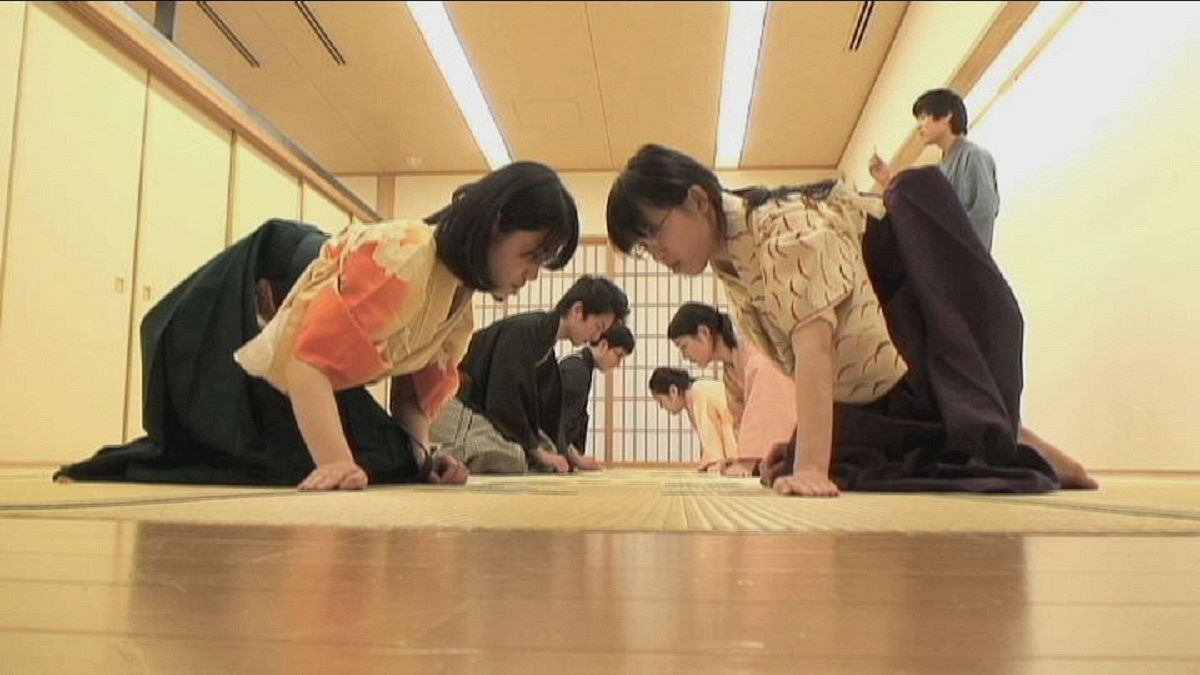Games are usually seen as recreaction but increasingly, educational games are being developed as an aid to learning. Computers and information technology are now part of daily life for many young people and some teachers are looking at ways of incorporating these new tools into their teaching.
UK: biology in 3D
In the Abbey School in Reading, in the UK, 3D movies have been used as teaching aids by the biology department since 2010, with good results.
Ros Johnson, the Head of the science department, said: “When I started teaching science, we just had a blackboard really, and we’d have these models as well. So you’d stand in front of the class with a model and you’d try to get everybody to see it and perhaps you’d pass it around and then people at the back would get irritated because they didn’t have it. And then we got the projectors onto whiteboard and we could use animation and things moved and it was better. And now we’ve got the 3D. Absolutely everybody in the class can see the 3D, it’s hanging in the middle of the classroom, the image, you can rotate it so they can all look at it, you don’t need to pass it around anymore and it’s fantastic.”
The jury may stilll be out when it comes to 3D in cinemas but in education teachers are finding it invaluable. For now, images can be manipulated using a mouse, in the future, students may be able to move the images with their hands.
3D projectors are the same price as conventional ones, and equipping a class of students with 3D glasses is relatively affordable. Best of all, the technology is easy to use.
For more information see
theabbeyschool
Austria: virtual inspiration
Professor Paul Pivec researches and teaches at the Johanneum University in Graz, Austria. He is an enthusaistic advocate of game based learning: “Students can learn in a virtual enviroment and that helps them with what we call experiential learning. They can practice things, they can do simulations and they can actually have fun. Especially if it’s like a game-based learning, if they’re playing a game that is specifically designed for learning, they can enjoy the learning.”
This doesn’t mean that teachers are out of a job however. Quite the reverse, in fact: “The disadvantage is perhaps that a lot of the times as a teacher or a lecturer or even as a parent, we’ll give them the technology and say: here go and learn; and that doesn’t work. That’s just like what we call a content dump. We’re just saying it’s the same as giving them a book. And they’ll get sidetracked, they’ll go to Facebook and start socializing. So you’ve got to keep them focused, you still have to have the teacher or parent involvement to guide them and to talk about what they’ve learned afterwards. The debriefing, that’s where a lot of the learning takes place. So the disadvantage often comes when we just leave them alone and say “here is the technology, go and do it”. We need to get them balanced, we need to guide them throught technology, we need to guide them with the content they are learning.”
Educational games are an addition to a teacher’s repertoire, not a replacement of other methods: “The old ways are very much still valid. The teachers do need to embrace the new technology and know how to use it. We don‘t want the pupils knowing more about the technology than the teachers, often they do, but they can still work. We can still discuss with the pupil what do they learn from it, how does that work and we can get them thinking more about what they‘re learning. And the more you think about what you‘re learning the more it accelerates the learning process.”
The trick is to combine the old and new teaching methods to engage young people and help them learn.
Japan: Play on words
Karuta is a traditional Japanese memory game in which competitors learn poems off by heart. The idea is to listen to the beginning of a verse, and grab the card with the right ending written on it before anyone else. As well as a good memory, you need quick reflexes to win.
To enter a Karuta contest, you have to have memorised 100 poems. The members of the Karuta Association at the University of Tokyo study every syllable of all the 100 poems that are recited in the contest. These poems are known as “One Hundred Poems from One Hundred Poets.” Karuta is also played in schools as part of the curriculum.
Karuta is often played at New Year and many people can quote the poems they learned many years ago in school, thanks to playing karuta. The game originated about 800 years ago amongst aristocrats during the so-called Heian Era. Today, it is widely practiced in schools and universities all over Japan.
For more information see
wikipedia
